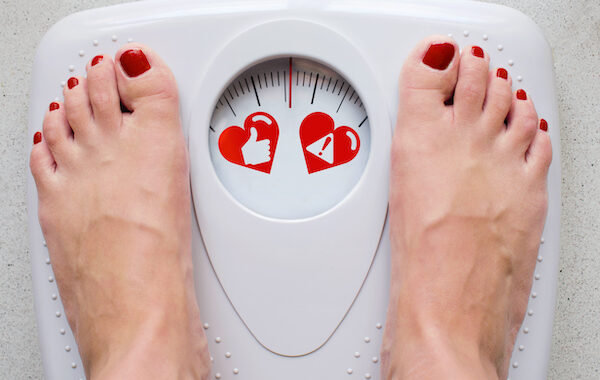Obesity is a far too common problem in the United States with 1 out of every 3 adults falling into that category according to a Harvard study in 2020. The technical definition is defined as a body mass index (BMI) as greater than 30, which has vast effects on other aspects of the body. One of the biggest impacts of extra weight is problems with the feet and alignments that could arise from it. Foot pain begins to develop when the body starts to compensate for extra weight by changing its typical movements and walking behaviors. Simple activities such as climbing stairs while being overweight can increase foot and ankle pressure by up to 6x the normal load pressure. This ultimately puts a lot of strain on the lower extremities which could cause additional issues.
As mentioned, one of the most common problems with carrying extra weight around is that the feet are impacted. Many times, the tendons and ligaments begin to stretch and are no longer able to hold the bones in the foot together. This in turn causes the arches to break down creating a flattened foot. Once this occurs, there is a lack of ability to absorb the shock from everyday activities creating pain and discomfort in the feet. This could eventually lead to other conditions such as plantar fasciitis, shin splints or weak ankles. Physical alignments are just the start as a lack of mobility may cause a persons’ independence to be taken from them which creates additional anguish and stress.
Not only does carrying around extra weight cause physical alignments (and sometimes emotional) but it can cost your pocketbook as well. According to the Centers for Disease Control and Prevention (CDC), “the estimated annual medical cost of obesity in the United States was nearly $173 billion in 2019 dollars. Medical costs for adults who had obesity were $1,861 higher than medical costs for people with healthy weight.” So not only will the weight cause soreness and irritation in the feet but the ability to receive professional care may cost you more over time!
One way to treat foot problems caused by obesity is by wearing proper footwear. Choosing the right shoe allows the feet to receive better circulation while helping to cushion the heal and arch for better shock absorption. It may ease plantar fasciitis if that condition is present while also helping to reduce inflammation and risk of additional injuries. Foot orthotics and other inserts may also help with shock absorption and can be added to a properly fitted pair of shoes for additional support and comfort.
If you have questions or concerns about your foot health, or if you are experiencing pain while standing, walking or during normal daily activities, reach out to a licensed podiatrist for a check-up. Foot health is crucial to daily, independent living and assessing your feet on a daily basis will help to catch any issues before they development into a more serious or ongoing concern. Be sure to stay healthy by eating and exercising and always be vigilant of what your body is telling you!

